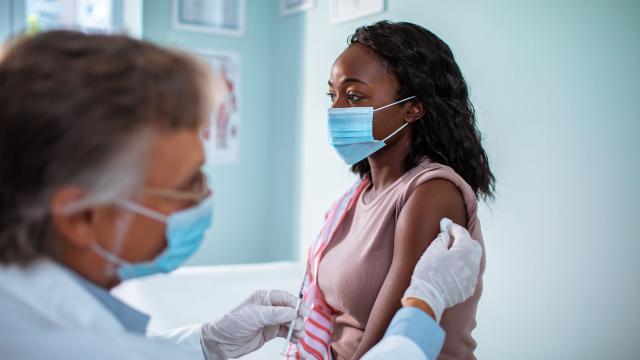As you’ve likely noticed by now, there’s been a lot of chatter online about the latest update from Pfizer and BioNTech on their COVID-19 vaccine candidate. Their latest assessments have found that their vaccine was over 90 per cent effective in preventing the virus in participants.
This is certainly positive news whichever way you slice it, but there are a few elements to this big reveal. So, let’s take a quick look at what we now know.
What’s the positive update?
The success of this latest stage of analysis for Pfizer and BioNTech is linked to the rate at which it was able to prevent the contraction of COVID-19. The analysis reviewed the results in participants who had been shown to be free of the SARS-CoV-2 infection prior to the study.
This trial kicked off on July 27 and has observed the status of 43,538 participants to date. Of that group, 38,955 people have received two doses of the vaccine candidate. Pfizer reports that 94 cases of COVID-19 were examined in this trial and shared that “the case split between vaccinated individuals and those who received the placebo indicates a vaccine efficacy rate above 90%, at 7 days after the second dose.”
Take this with a grain of salt
There has been criticism that the findings around Pfizer’s COVID-19 vaccine were announced by press release rather than a peer-reviewed medical journal. And industry experts have questioned the level of detail available in the update.
Prof Lyn Gilbert, chair of Australia’s Infection Control Advisory Group spoke with the Guardian on this point:
“It certainly sounds promising given it is 90% effective, but these results have not been peer-reviewed, and it’s really annoying, actually, when companies report these things in the media before a journal,” she told the outlet.
“Pfizer is a good company and it’s probably sound, but we really don’t have a lot of detail.”
Additionally, the point has been made by ABC News – who spoke with Kylie Quinn, a vaccine expert at RMIT University – that the rate of efficacy for Pfizer’s vaccine candidate could change. So, while it’s certainly exciting to hear, there’s still a way to go.
What does this mean for Aussies?
Well, while this candidate is not yet a sure thing, it is a positive step. And significantly, Pfizer’s COVID-19 vaccine is one of the options included in the Australian Government’s purchase agreement if it gets across the line. (Read: if it’s safe.)
For now, however, results are still being studied. At present, Pfizer has stated that there have been no reported safety concerns, but more data is being collated in this area.
If all goes well, they wrote: “we expect to produce globally up to 50 million vaccine doses in 2020 and up to 1.3 billion doses in 2021.”
Australia’s Health Minister Greg Hunt made a statement on Wednesday revealing that “we are on track to deliver vaccines to Australians commencing in March of 2021.”
He shared that 10 million units of the Pfizer vaccine have been secured at this point.
So, at that point, it would just be a matter of Australia purchasing enough of the vaccine to facilitate Aussies getting the jab. Exciting news, yes. But we have some waiting to do yet.

Leave a Reply
You must be logged in to post a comment.